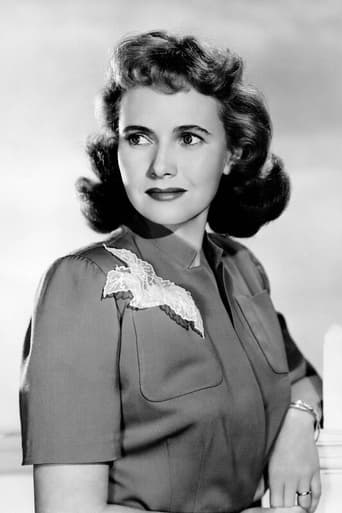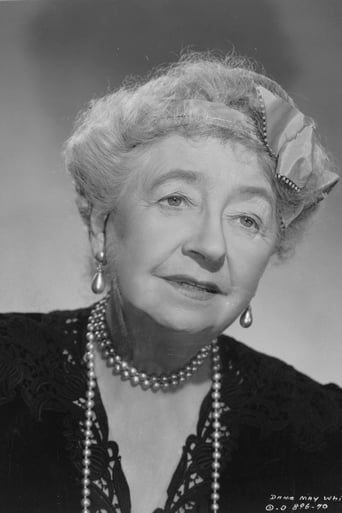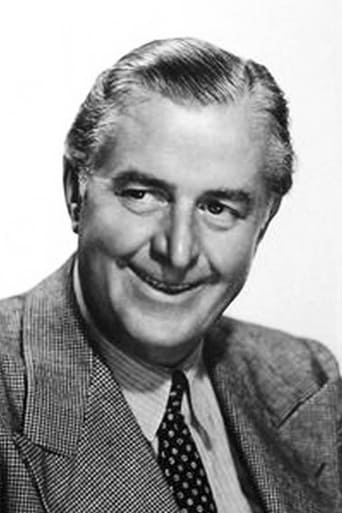Alicia
I love this movie so much
Raetsonwe
Redundant and unnecessary.
Pluskylang
Great Film overall
Glimmerubro
It is not deep, but it is fun to watch. It does have a bit more of an edge to it than other similar films.
pearlite-25660
I loved the scene in the bomb shelter with Napoleon the cat but was disappointed at the personal growth of Vin who comes back from war with the fresh face and bright eagerness of a boy which made him appear extremely artificial.
JohnHowardReid
Copyright 15 May 1942 by Loew's Inc. Presented by Metro-Goldwyn-Mayer. New York opening at Radio City Music Hall: 4 June 1942. U.S. release: 13 May 1942. Australian release: 1 October 1942. Sydney release at the Liberty. 12,013 feet. 14 reels. 133½ minutes.SYNOPSIS: Well-to-do English family copes with the outbreak of war - son enlists in the air force, father helps evacuate Dunkirk, mother captures a German aviator.NOTES: Mrs Miniver was voted Best Film of 1942 in The Film Daily annual poll of newspaper critics. Bosley Crowther placed the film on his Ten Best. The National Board of Review voted it third (after In Which We Serve and One of Our Aircraft is Missing). Picturegoer placed it first.COMMENT: It would be foolish to deny that Mrs Miniver has its faults: Photographically, the film is too MGM glossy. Admittedly, it's attractive to look at, but the texture is far too bright, far too sunny, far too bathed in light for even the most beneficent English summer (let alone the autumn of 1939 and the spring of 1940 in which the events are supposed to take place). The Hollywood sets too are far from English in atmosphere, while the supporting players are also overmuch inclined to overact their local colors.Nor are the principals altogether perfect. Greer Garson plays Mrs Miniver with her usual slightly-too-sweet air of patiently indulgent patronage, aided by Walter Pidgeon's mechanically dull husband. Richard Ney overdoes the ingratiating boyishness (he was actually 27 - he and Miss Garson were married shortly after the film's release). But Teresa Wright is remarkably luminous as Carol and Dame May Whitty makes a spiritedly strong-minded aristocrat. Henry Travers, as always, is delightful while Henry Wilcoxon (after a typically weak-as-water beginning) emerges with amazing forcefulness as the vicar.It is fortunate that these last four players have such important roles. For it is their assured playing (under Wyler's sensitive direction) that contributes so much to the ultimate power of the film.Whatever its faults, few would deny that the plot structure of the screenplay is certainly unusual: After a very quiet if cozily frantic start with domestic trivia and touches of local humor (in which Alec Craig plays an unusually large if rather appealing part, and to which Charles Irwin contributes a welcomely amusing cameo), the movie accelerates into a drama packed with so much incident and action, it is hard to believe (on paper) that the climactic highlight is actually who wins the prize for best rose at the annual village flower show. Yet this is indeed the case. The writers, the director and the main participants (Whitty and Travers) bring it off so superbly well it is one of the highlights of the film, surpassing such other powerful scenes as the gathering of the flotilla of small craft for Dunkirk (a sequence which is hurt by the rather obvious use of miniatures), the terror of two air raids and the vicar's final message, "This is a peoples' war." Yes, the flower show is most adroitly introduced and built up, the characters and their conflict so believable, it is one of the great film moments of the forties.Ronald Millar (who co-authored the sequel) investigated how the original script came to be written and wrote an article on his researches for MGM's publicity department. I quote: "It started way back in 1939 with some short stories in The Times (London). These stories attracted a wide circle of readers and were ultimately published in book form. This little book was particularly successful in America. A copy fell into the hands of producer Sidney Franklin who fell in love with the Miniver family. Franklin wanted to make the picture as a tribute to the English people, but had no story, nothing to go on but the little book of sketches describing a few small incidents in the daily life of the Minivers. There was no novel, no overall story at all, simply a family. Franklin called in James Hilton and R.C. Sherriff to rough out a treatment. They were joined by Claudine West, Franklin's personal assistant, an English¬woman who had worked with him for 15 years. The outline that emerged was worked up into a finished screen-play by Arthur Wimperis and George Froeschel."
Sergeant_Tibbs
The first of William Wyler's trio of Best Picture winners, the other great, the other not quite for me, comes with a stigmatic label as he admits it's guilty of a focused agenda. Made to provoke an emotional urgency for the Americans to join the second World War, Mrs. Miniver does often feel like overt propaganda. However, the sentiment of its melodrama is no less emotionally valid, and it often has some creative ways to deliver it in its resulting poignant third act. It is that final stretch which makes the film as it otherwise suffers from its episodic structure that only makes it sporadically engaging during lightweight sequences. It's otherwise saved by the terrific performances from its Oscar winning pair Greer Garson and Teresa Right who outshine their sometimes overacting supporting cast with nuanced and compassionate performances. At least the photography and production is relatively exquisite despite the limitations of an industry yet to be completely radicalised by Orson Welles. Yes, it's melodrama, but it's good melodrama, and it's stayed in the hearts of those who saw it in the 40s. Deserving of Best Picture? Not quite, but they could do worse. It does feel like its wins were making a statement however.7/10
The_Film_Cricket
It may not have been the original intention, but William Wyler's adaptation of Mrs. Miniver is invaluable to the history of American cinema. Released in 1942, at the exact moment that Hitler's forces were bulldozing their way across the European continent, here was a movie that tried to examine the homefront of an ordinary British family and how they dealt with the tragedy of being besieged by the Nazis. This was a movie that was made during those events, when the outcome of the war was still uncertain.The film stands out for many reasons, not least because of its point of view. Most Hollywood movies about the homefront dealt with the American Homefront, but here was a film front the frontlines, from the point of view of the British. It tells the story of the Miniver family, well-to-do British citizens whose lives are no more ordinary than anyone else. Father Clem Miniver (Walter Pigeon) is an architect, and she is a stay-at-home mother. They have three children, Vin (Richard Ney), Judy (Clare Sandars) and Toby (Christopher Severn).Their lives are so ordinary, they might be invisible. Kay spends her time shopping and fussing about the house and the kids. Clem has his eye on material goods. Despite their middling income, they spend a little more than they should. Their kids are bound up in social issues like dating. Vin is in a relationship with pretty young Carol Beldon (Supporting Actress winner Teresa Wright). Her grandmother is stuffy old Mrs. Beldon (Dame Mae Witty), whose concern over the Nazi threat is less important than the annual flower show. The world is coming apart around these people, but they merely see the circumstances out of the corner of their eye.This laconic view changes when the Nazis begin their bombing runs. Clem takes the boat and goes off to Dunkirk in order to rescue some soldiers in distress and Vin joins the R.A.F. The war, it seems, is arriving in their backyard and Kay experiences it first-hand when a wounded Nazi pilot hobbles his way into the Miniver kitchen. Night after night, the bombing runs destroy the England's cities and countryside. One of the bombs takes out half of the Miniver's living room.What is interesting is that the Miniver family seems so organic to their setting. This is not a story of people who become heroes of the war just because it happened. Their response to the war grows out of their nature. Kay's heroic response to the wounded soldier is not based on clichés but on what we know of her up to that point. That life simply goes in the presence of these terrible surrounding is to the credit of the screenplay. In the midst of the bombing run, we are invited to the annual flower show which becomes as important to us as it does to the people who are attending.





